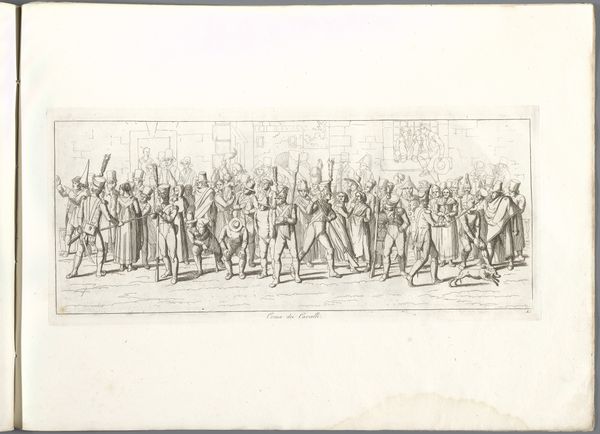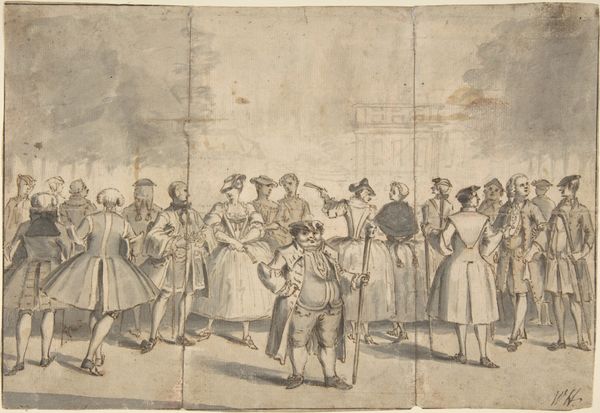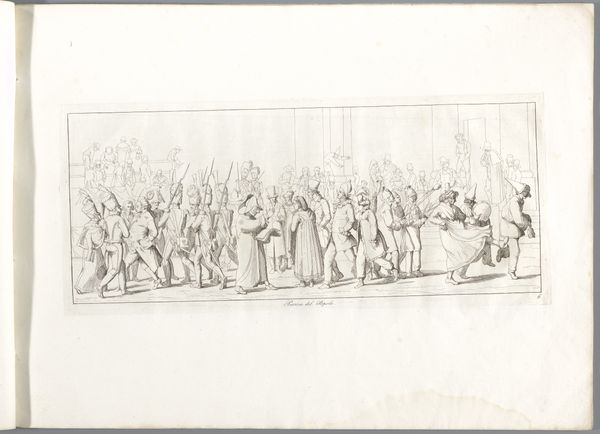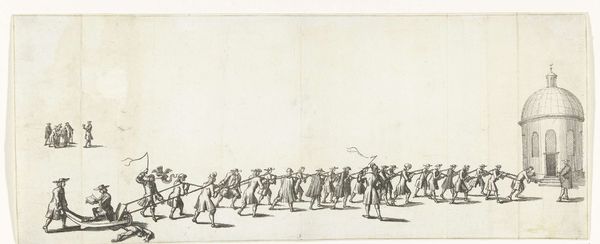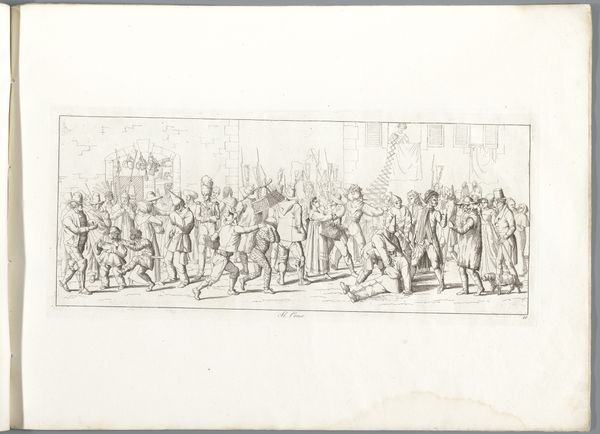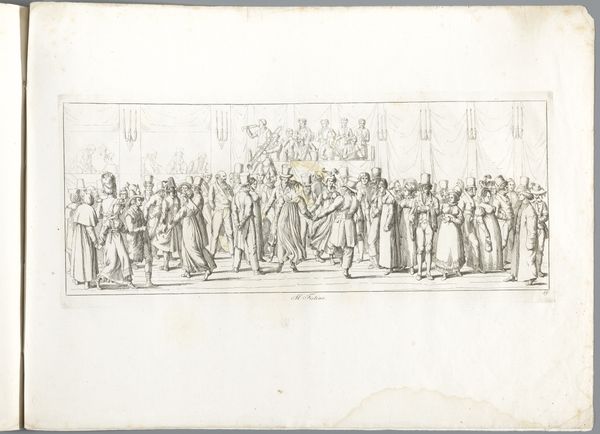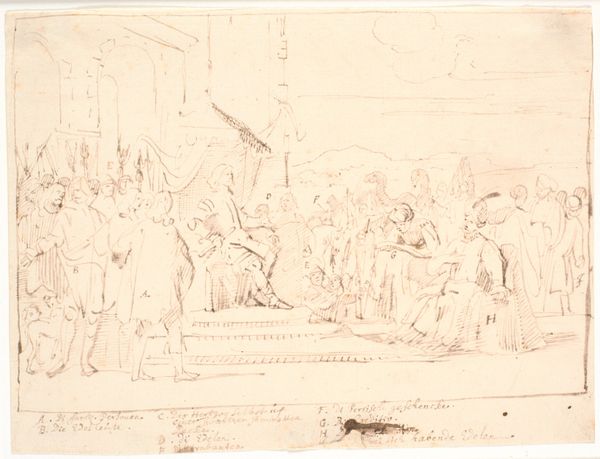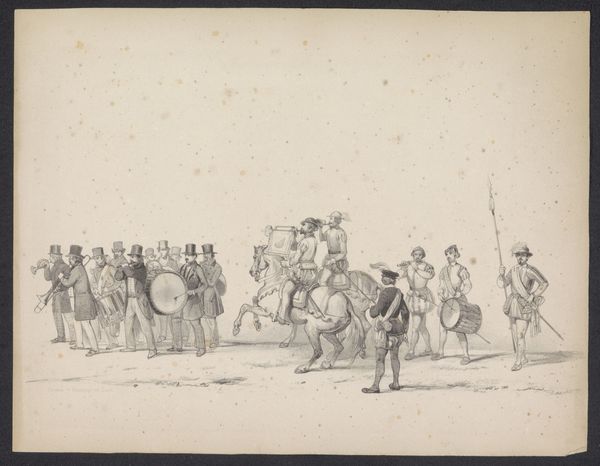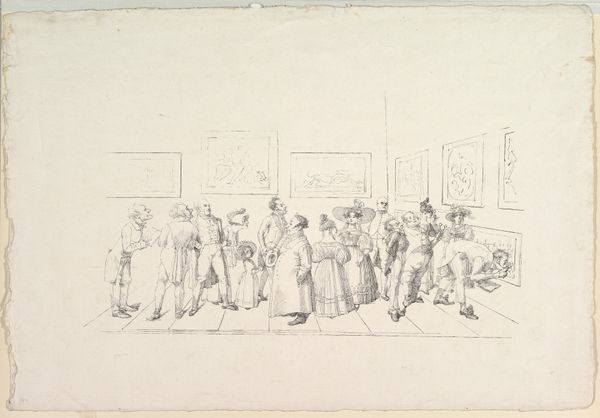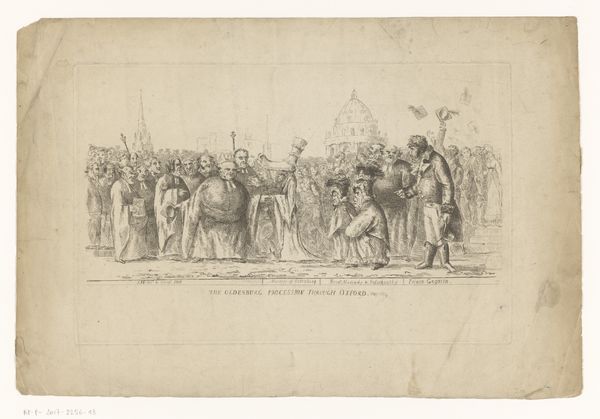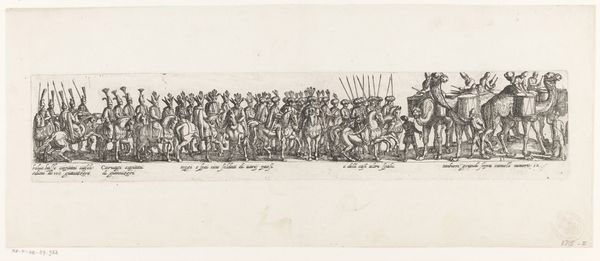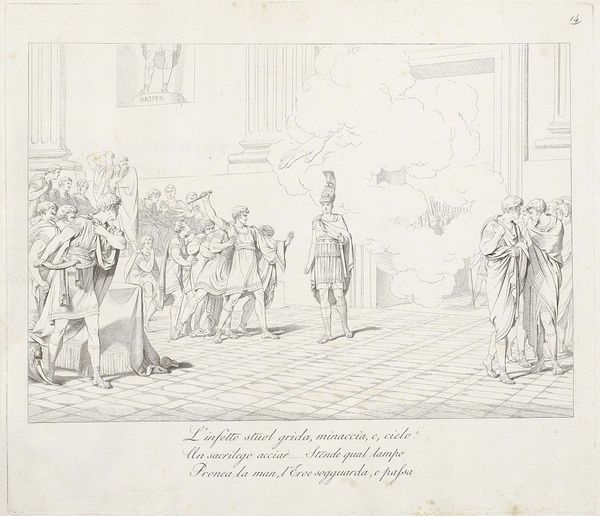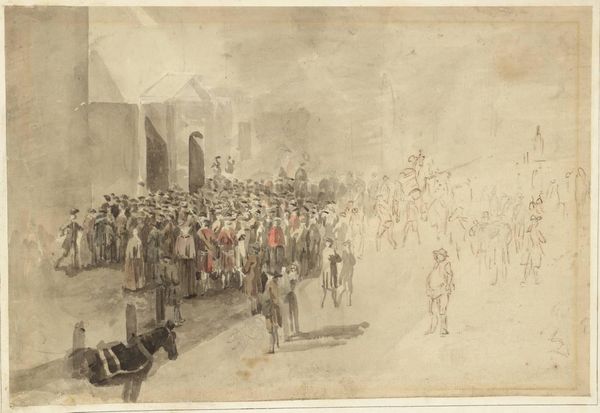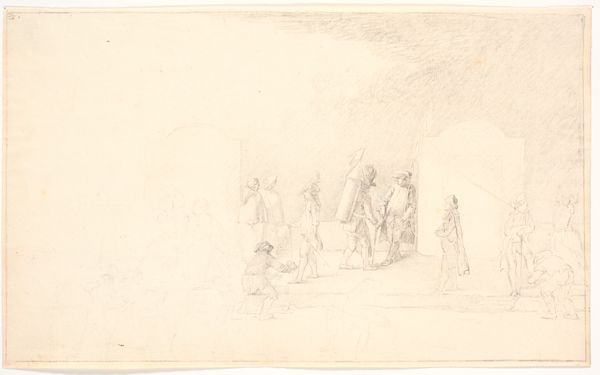
Forstudie til maleriet "Arrestbygningen ved Råd- og Domhuset 1831
0:00
0:00
drawing, pencil, graphite
#
drawing
#
light pencil work
#
quirky sketch
#
pen sketch
#
landscape
#
personal sketchbook
#
sketchwork
#
ink drawing experimentation
#
romanticism
#
pen-ink sketch
#
pencil
#
graphite
#
sketchbook drawing
#
cityscape
#
storyboard and sketchbook work
#
academic-art
#
sketchbook art
Dimensions: 227 mm (height) x 322 mm (width) (bladmaal)
Editor: Here we have Martinus Rørbye’s "Preliminary Study for the Painting 'The Arrest Building at the Council and Court House,'" created in 1831 using graphite and pencil. There's almost a dreamlike quality to the image because it feels like a quick snapshot, like something from a personal sketchbook. What catches your eye in this piece? Curator: Immediately, the abundance of figures intrigues me. Each figure is distinct in attire, yet united in their presence around this courthouse. It evokes the memory of a society steeped in legal process, doesn't it? Do you notice how Rørbye contrasts the seemingly nonchalant civilians with the stark presence of the building and guards? Editor: I see what you mean. It is as though there is something impending, but also part of everyday life. Curator: Precisely! Consider how courthouses function as focal points within communities – symbols of authority and order but also sites where personal narratives collide with the broader strokes of justice. Rørbye captured the subtle theatre inherent in civic life. Does the somewhat ephemeral sketch aesthetic add anything to that for you? Editor: Definitely, I can imagine all the individuals coming and going; each with their own history, their own reason for being at the courthouse. This must've been a familiar setting to see captured with such care. Curator: Rørbye's decision to depict it then, signifies the enduring, repetitive cycles of human interaction with the institutions that govern them. I'm reminded of how symbols, like this building, accrue layers of cultural meaning through consistent association. Editor: So, Rørbye highlights how the imagery of institutions impact those interacting with them? Curator: Precisely. Editor: This has changed my perspective considerably; it's more than just a snapshot. Curator: Indeed, a quiet observation becomes a commentary on the very fabric of society, woven with justice, governance, and the lives of ordinary people.
Comments
No comments
Be the first to comment and join the conversation on the ultimate creative platform.
